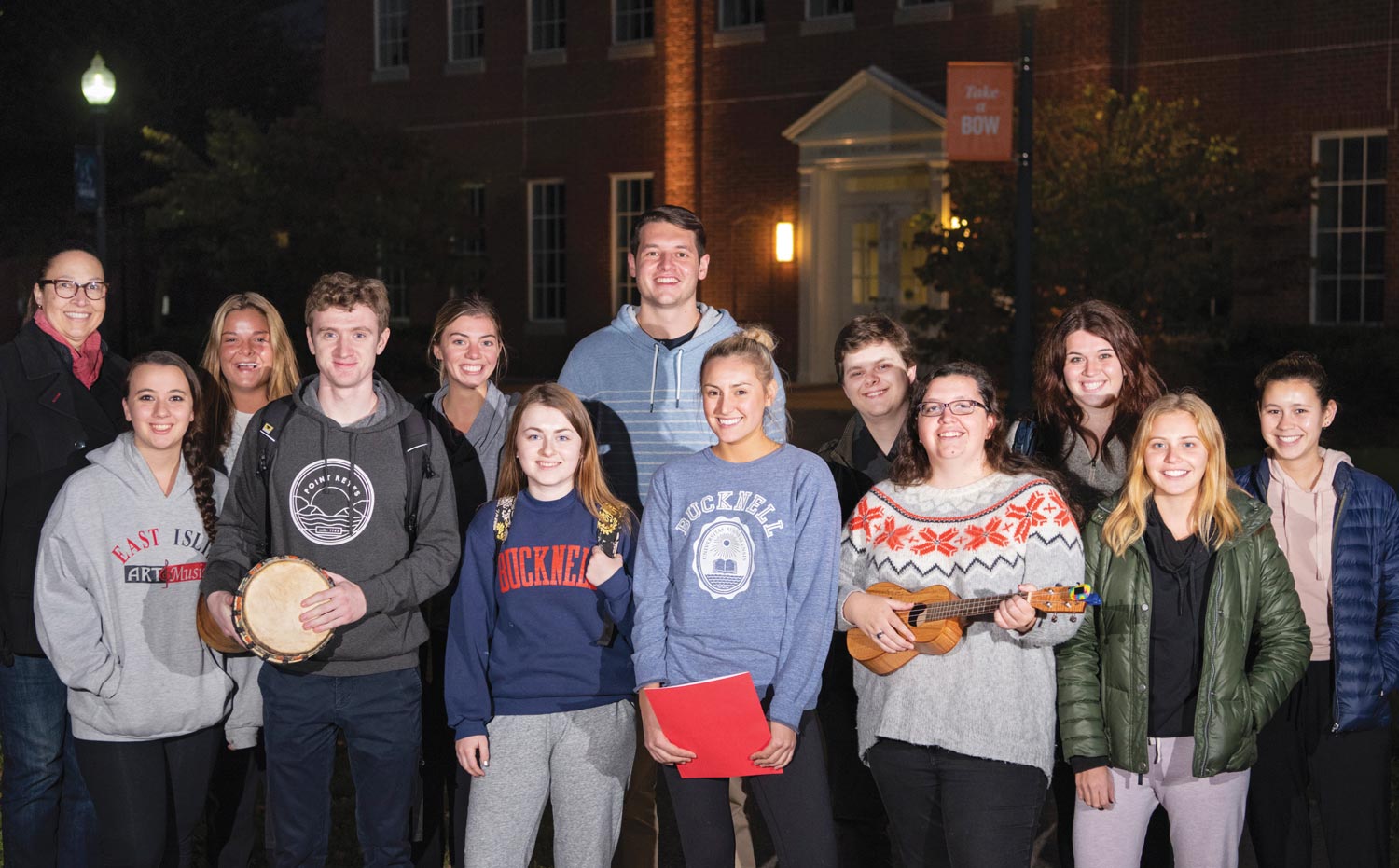
So goes a typical week of the Music and Social Justice class, taught by Professor Annie Randall, music, at the North Central Secure Treatment Unit (NCSTU), a facility in Danville, Pa., for adjudicated female teenagers run through the Bureau of Juvenile Justice Services.
Randall has long been interested in how music and social justice intersect, but when three Bucknell student D.J.s were expelled for on-air racist comments in 2015, she sought the advice of then-Director of Civic Engagement Janice Butler, who helped her consider how to create deeper connections around diversity and to use empathy as a tool in her courses.
Butler introduced her to staff at the NCSTU, who embraced the opportunity right away. “It evolved into a partnership,” Randall says. “The Bucknell students bring music activities to the class, but the Danville girls also create their own activities.”
Clarke Feldmann, NCSTU’s director of human resources, thought the interactive nature of the course would be key. “The program helps to create a positive culture that promotes growth,” he says. “And music is such a big part of our residents’ healing process.”
There’s a buzz as the Danville girls start talking about who’s been practicing beatboxing, which they have worked on with mechanical engineering and music major Allen Taylor ’19. He asks one girl to share, and she reluctantly rises. He breaks the ice, reminding the group how to use the phrase “boots and cats” to get going, and soon the whole class is clapping or beatboxing, paving the way for others to take the mic.
“The girls love it,” says Youth Development Area Supervisor Shanelle Menapace. “It allows them to be free to express themselves through music — and the Bucknell students share their talents, helping our students to bring out theirs.”
For the first eight weeks of the fall semester, Randall’s class met on campus to explore music, social justice, class and race, read voices of incarcerated women and girls, meet with NCSTU staff and prepare to lead class sessions in Danville.
“This class has been a fantastic experience,” says Taylor. One of his Danville counterparts agrees. “Music is very important because it connects people,” she says. “It’s given me far more than I expected.”